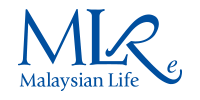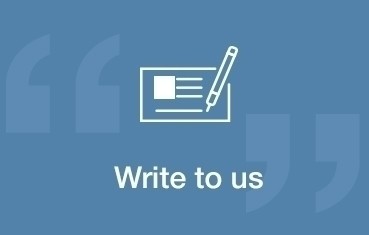Whistleblowing Policy
Summary of Whistleblowing Policy
The objective of this Policy is to provide guidance on the application of whistleblowing, including avenue for stakeholders of the Company to raise concerns about improper conducts, unethical or questionable practices in confidence and without the risk of reprisal.
Definitions
- “confidential information” includes—
-
- Information about the identity, occupation, residential address, work address or whereabouts of—
- A whistleblower; and
- A person against whom a whistleblower has made a disclosure of improper conduct;
- Information disclosed by a whistleblower; and
- Information that, if disclosed, may cause detriment to any person;
- Information about the identity, occupation, residential address, work address or whereabouts of—
- “disciplinary offence” means any action or omission which constitutes a breach of discipline provided by law or in a code of conduct, a code of ethics or circulars or policy or a contract of employment, as the case may be;
- “improper conduct” means any conduct which if proved, constitutes a disciplinary offence or a criminal offence;
- “whistleblower” means any person who makes a disclosure of improper conduct to the Company;
- “whistleblower protection” means protection conferred to a whistleblower under this Policy;
- “whistleblowing” is a way by which any one can report or disclose improper conduct, unethical or unlawful behaviour that has been done or is being done in the Company. Whistleblowing is a way to alert the Company that stakeholders are being wrongfully harmed or they are at the risk of harm.
Reportable improper conduct
Among the reportable improper conduct are as follows (though the list are not exhaustive):
- General misconduct
- Use of vulgar or abusive language/ behavior use of Company’s property to commit / attempt to commit misconduct;
- Threatening to use violence ;
- Sexual harassment by any associate.
- Unlawful / illegal conduct
- Fraudulent case;
- Dishonesty, corruption, bribery, blackmail;
- Failure to comply with any legal or regulatory obligation;
- Breach of law, rules and regulation;
- Cheating or theft.
- Un-procedural conduct
- Gross mismanagement or negligence of duties
- Any action or conduct which violates communicated procedures of the Company and such procedure are vital so as to not expose the Company to any risk or loss or actual loss.
- Unethical conduct
- Religious / racial / sexual discrimination;
- Causing danger to health and safety of others.
- Conflict of interest
It is worthwhile to note that there are distinction between complaints or grievances and reportable improper conduct for whistleblowing.
- Customer complaints
Where a customer is dissatisfied or has a dispute with the products or services offered by the Company, the customer is encouraged to complain this matter to the management of the Company.
Following is an example for reference purposes:
| Examples on complaints | Whistleblowing disclosure |
|---|---|
| Client is displeased with the response of the associate who advised that client is free to lodge a complaint with the Company if client is dissatisfied with the quality of his services. | Client complained that the associate has asked him not to file any complaint on his wrongdoing by offering him preferential rates and luxury gifts / entertainment. |
Whistleblowing channels
Whistleblowing channels are the first point of contact for whistleblowers to alert the Company about their concerns on improper conduct.
If any stakeholders believes reasonably and in good faith that misconduct exists in the MLRe, the stakeholder shall report this immediately and directly to the Company’s Audit Committee Chairman via the following channels:
- E-mail: (mlreacchairman@gmail.com); or
- Official letter addressed to the Audit Committee Chairman and sent to the Company’s registered address.
Note: In the event that the report is received by a person who is not competent to act on the matter or the action undertaken is considered unsatisfactory, the same could be transmitted, in strictest confidence, to relevant external enforcement agencies such as Bank Negara Malaysia and Malaysian Anti-Corruption Commission.
Protection of confidential information
All whistleblowing reports shall be treated as confidential information, anonymous and not to reveal the whistleblower’s identity, except as otherwise consented by the whistleblower. However, such consultation will not take place in the event the disclosure of identity is required by law.
Whistleblower protection
The whistleblower shall be protected against the following actions for raising allegations of misconduct even if the allegations has been proven to be incorrect or unsubstantiated:
- Protection of confidential information;
- Immunity from civil and criminal action; and
- Protection against detrimental action.
The same level of protection shall be extended to any person related to or associated with the whistleblower.
Reports made in good faith and revocation of protection
All whistleblowing reports have to be made in good faith with reasonable belief that the information and allegation is true and not frivolously/ maliciously and not for personal gain; otherwise, the Company reserve the right to take necessary action against the whistleblower.
The whistleblower protection will be removed if it is found that the whistleblower was also involved in the improper conduct, or if the whistleblower is found to have made the disclosures in bad faith.
Regulators / External agencies
The whistleblower is not refrained from communicating with regulators / external agencies as a recourse relating to the disclosure of reportable conduct particularly in the following circumstances:
- When it is believed that the disclosure may not have been taken seriously or addressed as appropriate by the Company;
- Whistleblower is dissatisfied with the outcome of the investigation process;
- Whistleblower is unfairly treated or victimized.
Contact details of external enforcement agencies:
- Bank Negara Malaysia (BNM) (www.bnm.gov.my)
- Director of LINK via Email: directorlink_wb@bnm.gov.my
- Malaysian Anti-Corruption Commission (MACC) (www.sprm.gov.my)
- Online Complaint Management System (CMS): www.portaladuan.sprm.gov.my
- MACC Hotline: 1-800-88-6000




